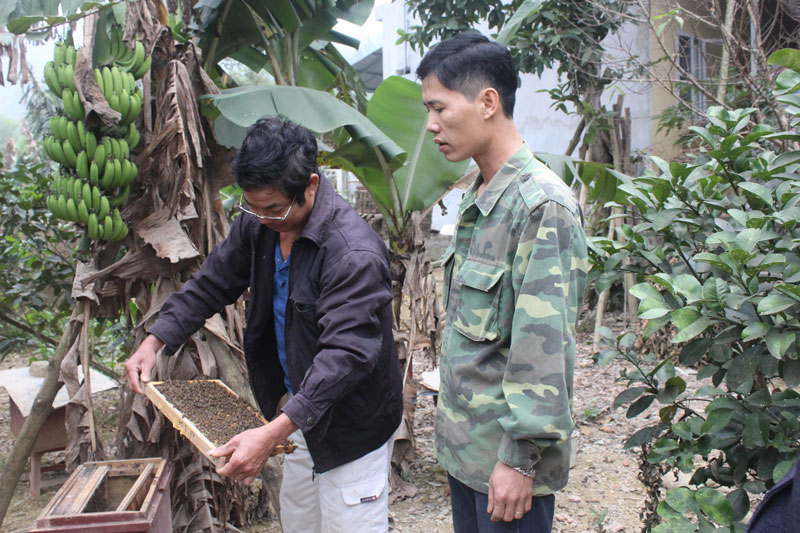



Beekeeping is not
difficult, but it requires beekeepers’ carefulness, deep knowledge of bees’
characteristics, flowers and seasons for collecting honey. Bees should be given
antibiotics to prevent rotten larvae, which caused by environmental pollution. They
should also be transferred to areas where there are many flowers for sucking nectar. This work is usually done at night as bees return
to sleep, aiming to avoid dispersal and impact of sudden climate change.
Every day, Hao and his
wife are busy with checking barrels containing bee’s nests, which are placed on
the hill behind his house. Flowers of logan and litchi trees, eucalyptus and
acacia are the best for collecting honey. The best time for producing honey is
from February to July. Especially in May, Hao’s family can collect thousands of
litres of honey, which is sold at 150,000 VND – 200,000 VND per litre.
The development of the
model has helped his family improve incomes, becoming a role model in the
commune’s beekeeping movement.
Currently, Dan Hoa
commune is home to about 100 beekeeping households with a total of nearly 3,000
herds, which produce 16,000-18,000 liters of honey worth over 2.5 billion VND
per year. Realising the economic effectiveness of beekeeping, many other households
have actively learned and implemented this model.
Dinh Xuan Thao,
Chairman of the communal People’s Committee said beekeeping is not a new business
in Dan Hoa. Formerly, it was developed in a small scale. In recent years, local
households took use of hill areas to promote the model, increasing the number
of beekeeping households from 30 in 2016 to 100 in 2017.
The commune authorities have asked relevant agencies to take suitable measures
to support beekeeping development, towards turning it into a spearhead sector in
the local economy./.